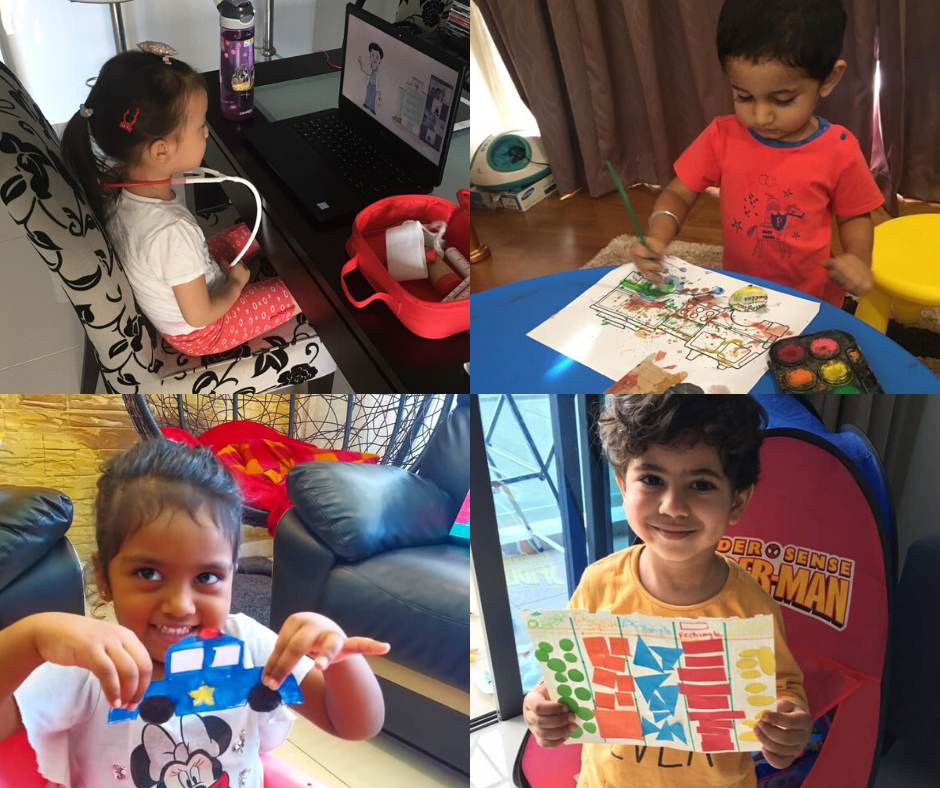Home >
Blog >
Supporting your child's mental health amidst the COVID-19 pandemic
Supporting your child's mental health amidst the COVID-19 pandemic

Nov 30, 2021 2:45:11 PM
As many countries are emerging stronger from the global pandemic and are slowly building towards a resilient recovery, it is vital that we continue to look out for the more vulnerable groups in society, especially those who are not eligible for vaccination or are immunocompromised. Covid-19 has put children at increased protection risk and put parents and guardians under stress to cope with the rapidly evolving situation.

Our teachers and staff here at White Lodge have been working closely with families to provide updated resources, SOPs and assurances that our children and their families are supported at all times. Due to the constant changes in rules, some children are spending more time at home and with limited social interaction and outdoor time, it can be quite lonely. Such a drastic change in their daily lives is bound to have mental and psychosocial effects amongst young children. It is therefore important that parents and guardians continue to support their young ones by being there when needed and responding to changes in behaviour the right way, while also helping them to understand the ongoing pandemic.
During the lockdowns, we have engaged a few experts to speak about ways to support mental health amongst young children and how to cope amidst the Covid-19 pandemic. Understanding the situation and risk factors are key when managing stress and poor behaviour. The discussion was led by Charlene Mariesa, the Founder of Autism Behavioral Center, Claire Bell, a qualified Special Needs Coordinator (SENCO) at SingEd Global Schoolhouse and Louise Grant, Managing Director at White Lodge Education Group Services. This was insightful as it laid the foundation for parents and families to deal with the pandemic together. Moderated by Amanda Suzuki, these are some takeaways on how to support your child's mental health:
1. Attention
Children love attention, and they tend to behave when attention is consistently given to them. Paying positive attention can therefore be helpful in showing appreciation to your child. However, negative attention may lead to increased misbehaviour being accidental rewarded. Hence it is important to maintain a balanced approach when observing behaviour.
2. Self-esteem and expectation
It is important to build self-esteem amongst children, especially during this challenging time. Giving your child simple options each day often goes a long way as it builds confidence and expectations. For instance, if your goal is to have your child dress themselves, try giving the option of wearing a butterfly top or a pair of striped leggings. It provides an opportunity to gain ownership over the simplest end goal.
3. Celebrate achievements
As it has been difficult for everyone to adapt to the new normal, celebrating little or daily achievements is a great mood booster and encouragement. Praising them on achieving common tasks such as finishing a meal or cleaning up toys , can help children feel appreciated for their level of ability. These may appear small, but it works wonders in many ways!
4. Know how to spot signs
Parents and guardians can also learn to spot worrying signs and changes in their children, such as sleep pattern, appetite and lethargy. These behavioural changes may indicate the need for extra psychological support and comfort. Severe cases may also mean professional help may be required to understand the impact of isolation.
5. Communication
Communication with young children can be as easy as in having daily conversations, or in written form. Going down to a child's level to understand their thoughts and feelings is beneficial to regulate emotions, especially when being isolated. Parents may try providing a piece of paper and coloured pencils and see how the child can express themself in simple words (does not have to be precise), or even in the form of drawings.
6. Develop a daily routine
Having a daily structure works not only for adults but for children too. Developing a daily schedule with a visual timetable may help with the flow within the household in many ways. This can also help children feel stable and gain a sense of control of information ahead of time.
Try limiting screentime and include a variety of activities throughout the day in order to strike a balance in learning and emotion regulation.
To watch the full webinar, visit: https://www.youtube.com/watch?v=IPSGaFHVzpo
White Lodge is here to provide both parents and children with all the support they need. With schools slowly opening back up in both Singapore and Malaysia, and restrictions easing up slightly, it is still important for us to remain vigilant and continue practicing these good mental health practices regularly.

